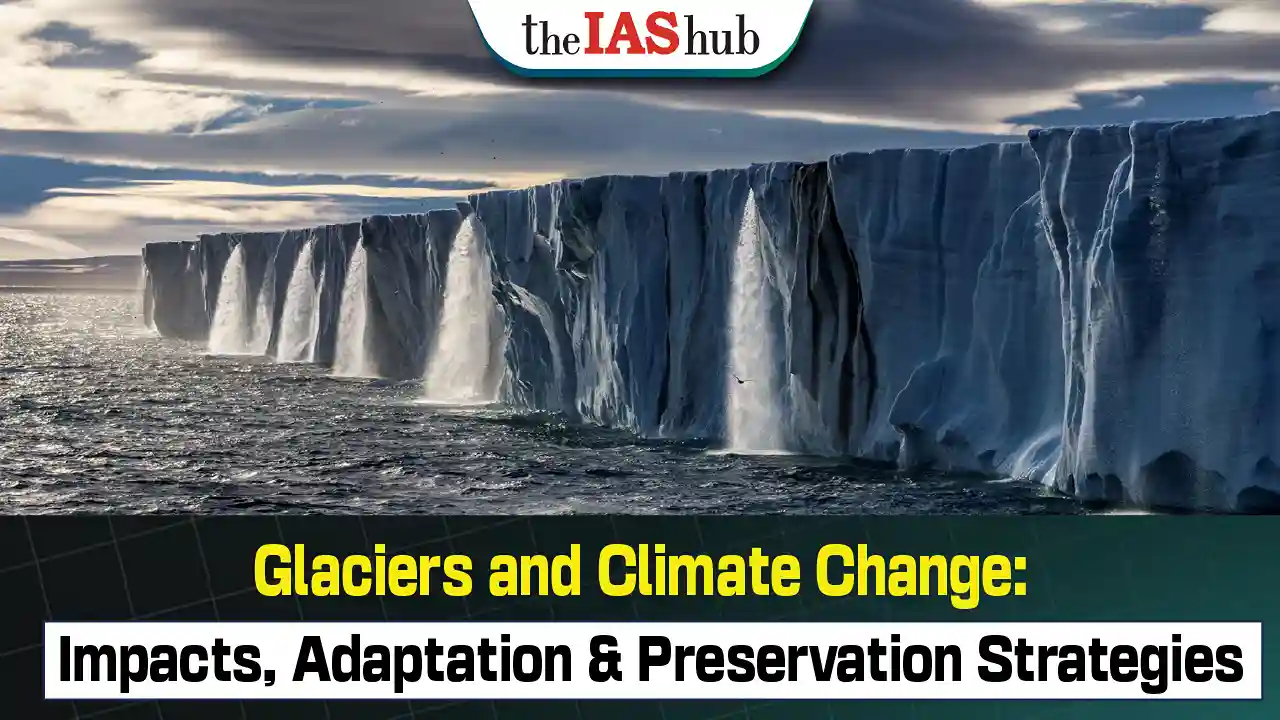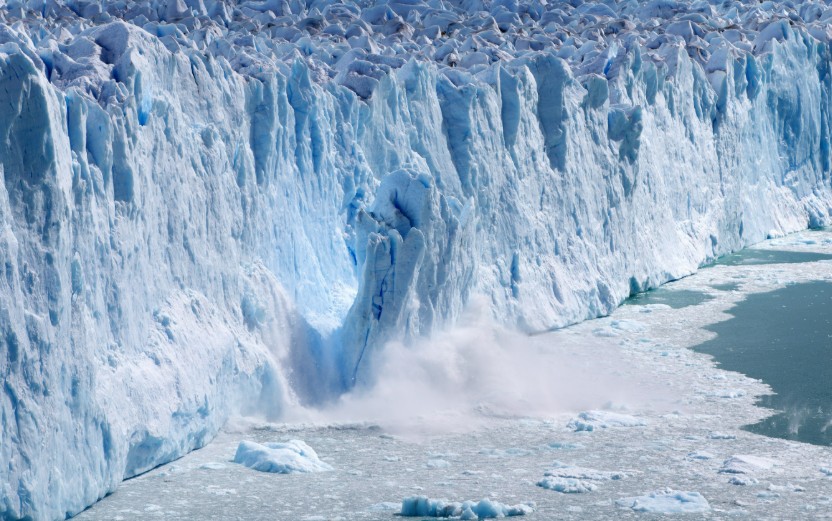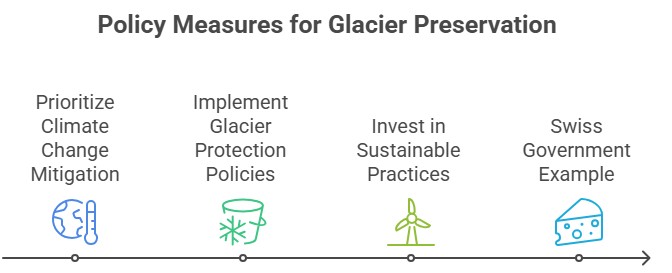Explore how climate change accelerates glacier melting, impacts water resources, sea levels, and ecosystems. Learn about glacier tourism effects, adaptation strategies, and policies for preserving glaciers and supporting glacier-dependent communities.


The Intergovernmental Panel on Climate Change (IPCC) reports that glaciers worldwide have lost approximately 9000 billion metric tons of ice since the early 20th century. This has contributed significantly to the observed rise in sea levels which have increased by an average of 15-20 centimeters.
Glaciers and Climate Change: Glaciers, sculpted over millennia, hold valuable information about past climates and offer insights into our planet's future. However, rising temperatures are rapidly melting these icy giants, impacting water resources, sea-level rise, and ecological balance.

Glacier-dependent communities need to adapt to the changing conditions and reduced glacial resources.
Strategies: Strategies may include:
Policymakers need to prioritize climate change mitigation by

|
Extra Marks Fetching component by theIAShub
|
Climate change intertwines with the fate of glaciers, showcasing the delicate relationship between human activities and Earth's ecosystems. Preserving dwindling ice formations requires innovative solutions and collective action. By forging sustainable paths and nurturing resilient societies, we navigate ecological challenges and safeguard our planet's fragile equilibrium.


Refine your answer writing skills and elevate your UPSC preparation with personalized support and expert feedback.
Fill out the form to get started with the program or any other enquiries !








Are you dreaming of becoming an IAS officer? Then, IAShub can be your best guide. It is one of the Best IAS Coaching in Delhi. Many students who want to clear the UPSC exam join IAShub for learning. The institute gives both online and offline classes. Their teachers are experienced and helpful. They easily explain every topic. Students also get notes, tests, and tips to do well in the exam.
IAShub is in Delhi and is trusted by many UPSC students. It offers coaching for every part of the UPSC exam – Prelims, Mains, and Interview. The classes are simple and easy to understand. The teachers are experts and guide students in the right way. IAShub is also known for its helpful notes, test series, and answer-writing practice. IAShub is the best coaching in Delhi and also gives UPSC Online Classes. This helps students from any place in India to learn. The online classes are live and also recorded. So, students can watch them anytime. These classes cover the full UPSC syllabus.
Here are some important services provided by IAShub:
The UPSC Civil Services Exam has three parts:
This exam is tough, but with the right guidance, it becomes easy to manage. Students must study smart and stay regular.
IAShub supports students from the beginning to the end. It gives the right books, tests, and notes. The classes are easy to follow, and the teachers are always ready to help. Students get personal doubt sessions too. The test series and answer checking help students learn where they need to do better. Also, free study materials save time and money.
IAShub also guides students during the final stage – the interview. Experts take mock interviews and give useful tips. This full support makes IAShub one of the best IAS coaching in Delhi.